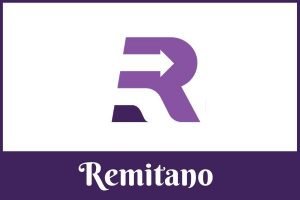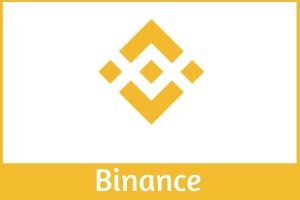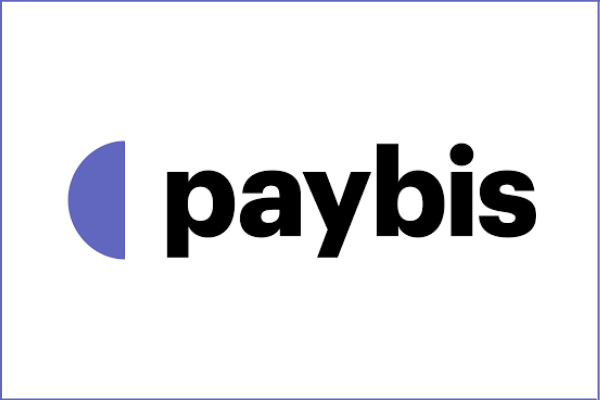Ethereum is the world-leading programmable blockchain that launched in 2015.
Just as Bitcoin created decentralized money by removing 3rd parties in money exchange, Ethereum created a decentralized platform for developers to build apps.
If you don’t understand the above sentences, don’t worry. I broke it down further in such a way that even a 10-year would understand
By the time you read the very last line of this post, you will have become a ‘pro’ in Ethereum matters as I have explained Ethereum in plain English – the basics, wallets, exchanges, and all.
I’m about to embark on this journey into the Ethereum sphere, and I hope you’re ready to go with me.
Alright…Let’s do this!
Summary of Post
On this journey to becoming an Ethereum ‘pro,’ we will discuss the following main points:
- What is Ethereum?
- Who Created Ethereum?
- What is Ether(ETH)?
- What is Ethereum Classic?| Smart Contracts Gone Wrong
- Ether Mining
- Exchanges to Buy Ether
- Where to Store Ether(ETH) – Ether Wallets
- What Can Ethereum be Used For?
- Ethereum VS Bitcoin
- Frequently Asked Questions (FAQs)
- Conclusion
A click on any of the points will have the details opened right before you.
Have fun reading this post.
What is Ethereum?
Ethereum Explained
You can better understand Ethereum by understanding the internet and how it works. For starters, we all use the internet. You are reading this now on the internet.
What is the Internet and how does it work?
In simple terms, the internet interconnects computers around the world through devices called servers or routers. The connected computers can receive and send all kinds of information such as videos, voice, graphics and text. What this implies is that the owners of these servers or routers (Facebook, Google, Amazon, Hostgator, etc) can interfere with or control the information on the computers connected to them. If they can, the government also can.
For example, Facebook can shut down your Facebook account if you fault their policy, google and Yahoo can also do the same. A hosting company can also shut down an entire website. Secondly, hackers sometimes attack this system and get hold of people’s accounts.
Vitalik Buterin created Ethereum to give users full control of their content online.
For example, when users ‘like’ and ‘share’ their favourite artists’ posts on Facebook, the only profit generated comes from advertisements placed on their page, and it goes directly to Facebook. But in an Ethereum version of such a social network, both the artist and the fans would receive awards for positive communication and support.
This is achieved by ‘smart contracts.’
How Ethereum Works
Smart contracts automatically perform transactions and other specific actions within the network, without requiring you to trust the other parties involved. The contract pre-programs the terms that both parties must fulfil.
The completion of these terms then triggers a transaction or any other specific action.
Now, I will take a detour to explain how a smart contract works.
Let’s say Rita sees a size 39 shoe displayed on an e-commerce site(e.g Jumia) and orders it.
The shoe costs $200, and Rita will want to ensure that it fits properly (i.e., it is not a big-sized 39 shoe) before spending such an amount on it.
To ensure that neither party cheats, Rita deposits $200 into a smart contract under the condition that the money will be released:
- To Jumia within 24 hours if the smart contract determines that the shoe fits her.
- Back to Rita within 24hrs if the shoe does not fit and is sent back to Jumia.
Many people believe that smart contracts will eventually replace all other contractual agreements.
This is because the implementation of smart contracts provides security that is superior to traditional contract law, reduces transaction costs associated with contracting, and establishes trust between two parties.
Moreover, the system also provides its users with the Ethereum Virtual Machine (EVM).
This essentially serves as a runtime environment for smart contracts based on Ethereum.
Who Created Ethereum?
In late 2013, Vitalik Buterin described his idea in a white paper. He proposed Ethereum because he felt Bitcoin should include script language for apps on the Bitcoin Blockchain.
The scripting language used by Ethereum is Turing-complete, essentially meaning that the types of decentralized applications(DApps) users can design are limited only by their programming skills and creativity.
Failing to gain agreement, he proposed the development of a new platform with a more general scripting language.
Ethereum was then publicly announced in January 2014 at a North American Bitcoin conference in Miami with the core team consisting of Vitalik Buterin, Mihai Alisie, Anthony Di Iorio, Charles Hoskinson, Joe Lubin, and Gavin Wood.
People bought the Ethereum token with Bitcoin during an online public crowd sale in July–August 2014 to fund its development.
So, hold on, Ethereum is also a currency? (this is becoming confusing!)
NO! Ethereum is the blockchain while Ether is the currency of the blockchain; just like the Ripple network and Ripple (XRP).
Just scroll for further details on Ether.
Ether(ETH) – The Currency of Ethereum
Ether is the value of one Ethereum Blockchain token.
In simpler terms, Ether is the currency of Ethereum; just as the USA has the Dollar (USD) and Nigeria the Naira (NGN).
It does not only operate as a digital currency, but it also acts as ‘fuel’ for the decentralized apps within the network.
You must have Ether to be able to develop an app on the Ethereum network, pay the transaction fees, and for computational service.
The transaction fees are automatically calculated based on how much ‘gas’ an action requires.
Ethereum Ether ranks as the second coin on coinmarketcap by market capitalization(preceded only by Bitcoin).
It has a market capitalization of more than $20 billion (as of 11th November 2019).
What is Ethereum Classic(ETC)?| Smart Contracts Gone Wrong
Ethereum Classic is a cryptocurrency that resulted from a split in the Ethereum Blockchain. This split took place because of a disagreement in the Ethereum community.
What really happened?
A hacker found a way to steal 60 million USD worth of Ethereum coins. This brought a division within the Ethereum community.
To salvage the situation, one group agreed that ‘Code is not law’.
They proposed a hard fork in the Ethereum blockchain and that the stolen Ether should be returned to the original owners.
Another group still stuck with ‘Code is law’ and that it should not be tampered with.
So the Ethereum Classic (ETC), in reality, is the original Ethereum while Ethereum Ether(ETH) is the one that has undergone a change.
‘Code is law’ is a rule established on Ethereum blockchain regarding smart contracts. Now, smart contracts on Ethereum blockchain have the terms of the contract encoded in them. For a smart contract to run, it follows specifically the code which has the contract terms.
Thus the saying: Code is Law simply means that the code of a contract must be followed to the very last.
With that explained, I will go ahead and look at how Ether can be gotten: through mining or by purchasing from exchanges.
Read on for further details.
Ether Mining
Ether mining is the process of maintaining the Ethereum ledger through solving complex mathematical problems.
Mining Ether requires Proof-of-Work. This simply means that miners contribute their computing power to solve a complex mathematical problem in order to confirm a block within the network.
Ether miners receive 2 ETH as their reward plus all transaction and code-processing fees (gas) contained in their block, plus a possible bonus for any uncle blocks they include.
Unlike Bitcoin mining, Ether can only be mined with a Graphical Processing Unit (GPU).
How to Start Mining Ethereum
1 – Install your GPU and set up your computer
2 – Get an Ethereum wallet (e.g MyEtherWallet)
3 – Join an Ethereum mining pool
4 – Start mining!
Now, instead of mining, some persons will choose to purchase Ether.
Listed below is a good number of exchanges where you can do just that.
Just read on.
Where to Buy Ether (ETH) at the Best Price
The demand for Ethereum Ether has continued to increase as more people discover its use and potential investment opportunities.
The top cryptocurrency exchanges where Ether can be bought in Nigeria include:
- Quidax
- Luno
- Remitano
- Binance
- Paybis
Details are discussed below.
1. Quidax

Quidax is one of the best exchanges to buy the Ethereum Ether ETH in Nigeria.
It was launched in 2018 and has received massive adoption by most traders in Nigeria.
Besides Ether, Quidax supports the storage and trade of Bitcoin, Dash, Ripple, Litecoin, Tether, BitcoinCash, and BitcoinGold.
2. Luno

Luno started in 2013 in Singapore and has since expanded its services to several other countries.
It is a broker/trading platform type of exchange and it had the brand name changed in 2011 from Bitx to Luno.
Luno currently supports only 3 cryptocurrencies: Ethereum, Bitcoin, and Bitcoin Cash(which was recently added in July 2019).
3. Remitano

Remitano is a Peer-to-Peer exchange that was launched in 2016.
It connects buyers and sellers using the Escrow system.
It started off as a P2P Bitcoin exchange in Nigeria but has now expanded its services over the years.
Users on Remitano can now buy and sell Ether through P2P.
4. Binance

Binance is another good exchange that you can buy Ether from.
It is a trading platform for over 500 cryptocurrency pairs.
The platform was launched in 2017 by Changpeng Zhao, a Chinese developer and now offers a lot more services apart from crypto trading.
5. Paybis

Paybis is a digital and cryptocurrency exchange where you can swap one currency for another.
For example, from fiat money (such as Dollar, Euro, e.t.c.) to cryptocurrencies (such as ETH, BTC, XRP, e.t.c.).
Other cryptocurrencies that can be bought on Paybis include Bitcoin, Litecoin, Ripple, Bitcoin Cash, and Neo.
Some other exchanges where you can buy Ether include CEX.IO, Bitstamp, Coinbase,e.t.c.
Another way of buying Ethereum is through Bitcoin. If you already have Bitcoin, you can easily exchange it for Ethereum.
If you don’t have Bitcoin, there are numerous methods of buying Bitcoin using various payment methods as you find suitable.
Once you have your Bitcoin, you can exchange it for Ethereum on these platforms.
Okay, so now I have acquired the coins, where do I store them?
Got you covered still; just scroll down and read up!
Where to Store Ether – Ether(ETH) Wallets
Ethereum Ether(ETH) is the 2nd cryptocurrency by market capitalization. It is also one of the most promising techs in the blockchain realm.
While we have an extensive range of Ether wallets out there, I will only look at the best and most popular Ether wallets around. The list includes:
- Bitfi
- Ledger
- Trezor
- KeepKey
- Ellipal Titan
- Coinomi
- MyEtherWallet
- Exodus
- Jaxx
- Exchanges
Find the details below.
1. Bitfi
This is still the best and most secure hardware wallet for Ethereum Ether as at the time of compiling this list.
Bitfi stores your Ether securely offline. Considering security, Bitfi security is state of the art with the development team claiming it to be unhackable.
This claim is based on the fact that nothing is stored on this device; not the seed keys or the private keys.
Then how does it guarantee security? It guarantees security in a very unique way.
On set up, Bitfi prompts you to create a single word private key that is not stored on the device or on any server in the world.
This single word is remembered only by the user and serves as a password and also a private key.
2. Ledger
Ledger wallet is one of the cheapest Ether hardware wallets money can buy and costs from $59 – $119.
In this wallet, your Ether and other cryptos are stored offline on the device.
In a case where you want to spend your Ether, Ledger signs you in with the private key stored on the device.
Ledger products include Ledger Nano S, Ledger Nano X, LedgerLive, Ledger Back-up Plan, e.t.c.
3. Trezor
Trezor is the world’s first hardware wallet invented for BTC. However, the wallet now supports Ethereum Ether through the MyEtherWallet web interface.
It works by storing Ether on a secure offline electronic chip which can only be accessed and activated when you log in with your password.
It costs from $78 – $170. Its products include Trezor One and Trezor T.
4. KeepKey
KeepKey is one of the most popular hardware wallets in town. It is another great Ether wallet that supports other cryptocurrencies as well.
KeepKey is greatly secured and privacy-centric. It stores crypto assets by keeping the private keys offline and backed by a seed phrase.
So, you can store your Ethereum and other cryptos with a level of security that can guarantee the safety of your assets.
5. Ellipal Titan
Ellipal Titan claims to be 100 percent isolated from all networks by only creating a connection with the computer or smartphone via QR codes.
It supports Ether and over 30 native coins including all the ERC20 tokens.
The wallet costs $169 (excluding shipping fees).
6. Coinomi
Coinomi is a mobile wallet available on Android and recently, on desktop and iOS. It supports Ether and 1000+ cryptocurrencies and tokens.
Its integration with Shapeshift and Changelly makes it easy to buy and swap cryptocurrencies securely.
If you lose your device, don’t worry! You can use your recovery phrase to get your portfolio back.
7. MyEtherWallet(MEW)
This wallet is particularly different from other traditional web wallets. This is because unlike most web wallets, in MyEtherWallet, you control your Ether private keys.
MEW is also distinguished because it is an open-source wallet requiring no third-party servers.
For convenience, you can also connect some hardware wallets such as Trezor or Ledger to MEW’s web environment to access your funds easily.
8. Exodus
Exodus is the world’s first multi-cryptocurrency desktop wallet.
It supports up to 100 cryptocurrencies including Ethereum Ether.
It is very keen on security too, introducing email recovery and seed keys to make sure your digital assets are secure.
9. Jaxx
Jaxx is a multi-crypto wallet that supports wallet for over 80 cryptocurrencies including ETH.
It has an elegant interactive design with excellent security features.
Your private keys never leave your device and features like seed keys allow you to synchronize and restore your wallet funds whenever needed.
10. Exchanges
Most exchanges serve as wallets for storing Ethereum Ether and other cryptocurrencies.
Examples include Quidax, Luno, Binance, e.t.c.
Now, armed with this knowledge of where to store ETH, let’s go ahead to look at what the Ethereum blockchain can be used for.
What Can Ethereum Be Used For?
Ethereum is a software platform that allows developers to build and deploy decentralized applications.
Some of these dApps(decentralized applications) created with Ethereum include:
- Augur — An open-source prediction and forecast market that rewards correct predictions.
- Gnosis — A decentralized prediction market that enables users to vote on anything from the weather to election results.
- EtherTweet — This application takes its functionality from Twitter, providing users with a completely uncensored communication platform.
- Etheria — It feels and looks very much like Minecraft, but exists entirely on the Ethereum Blockchain.
A total list of its applications can be found on the State of the dApps website.
Ethereum Ether vs Bitcoin
For the past few years, Ethereum Ether has remained in the number 2 slot in the coin ranking and is preceded only by Bitcoin.
The coins were compared in the table below:
| Parameters | Ethereum | Bitcoin |
| Creation Date | 2015 | 2009 |
| Market Capitalization Value (as of 12th November 2019) | Over $20,000,000,000 | Over $150,000,000 |
| Total Number of Coins | Not available | 21 million |
| Block Transaction Time | 15 seconds | 10 minutes |
| Consensus Mechanism | Proof of Work | Proof of Work |
| Mining Hardware | GPU | ASIC Miners |
| Initial Distribution | ICO | Mining |
| Hashing Algorithm | Scrypt | SHA 256 |
| Number of Transactions per Second(tps) | 15 tps | 7tps |
Frequently Asked Questions (FAQs)
As already established, Ethereum is not a cryptocurrency but a network.
But the network is run with the help of Ether, a cryptocurrency created by the Ethereum network.
This is because Ethereum allows for uncle blocks to be added to the blockchain.
But in Bitcoin, an uncle(orphan) block will not be validated.
Therefore, Bitcoin uses a stricter difficulty adjustment to reduce the likelihood of having two blocks mined at the same time.
Ether has proven itself as a household name in the crypto sphere so investing in it won’t be a bad idea.
Some persons may prefer investing in Bitcoin alone since it has been at the forefront of cryptocurrency evolution.
But as the saying goes: Do not put all your eggs in one basket.
Shifting some eggs into the ETH basket will help you diversify your investment.
But then, all investments should be done with great wisdom.
Many Ethereum enthusiasts believe that Ethereum’s market cap will someday rise above that of Bitcoin. This is known as Flippening.
On June 12th, 2017, Ether peaked at $420.
This led to speculations that it could overtake Bitcoin in total market value.
This was mainly because of the ICO hype that was funded through Ether, increasing its demand.
But today, Bitcoin’s total market cap is about 8X higher than that of Ether.
Learn How To Trade
If you want to learn how to trade cryptocurrencies profitably, sign up for free on Afibie.
You can join our Telegram channel, where we hold live sessions and give trade signals.
Conclusion
This is the concluding part of today’s post.
By now, I believe you are now a pro in Ethereum matters(Congratulations!)
And I know you have some things to say/ask(I have some too).
Would you prefer to mine ETH or just buy from any of the listed exchanges?
And speaking of exchanges, do you know of any that should make this list?
In your opinion, do you think ETH will ever ‘flip’ over BTC at some point?
Just let me know your answers ASAP in the comment section.
Please, don’t hodl on to this knowledge, share it! (I mean, what’s the point of it being ‘knowledge’ when no one ‘knows’ it?)
The share buttons are right below.












I am curious what is the minimum amount of Eth that can be converted to cash and withdrawn for a Nigerian? I am an American that is looking to do some crypto giveaways of Ethereum for Nigerians but I have seen that NairaEx requires around $80 worth to cashout. I want to make sure that if I send Ethereum to someone in Nigeria, they are able to withdraw the money and enjoy it rather than have it sit in their wallet forever. Any help is greatly appreciated!
You can use Luno or Quidax